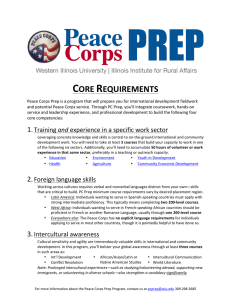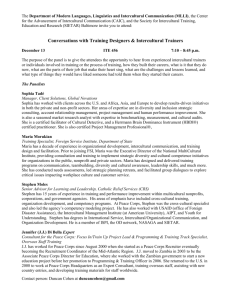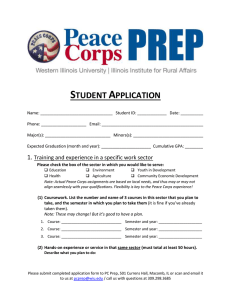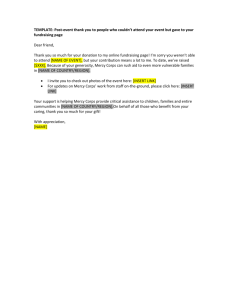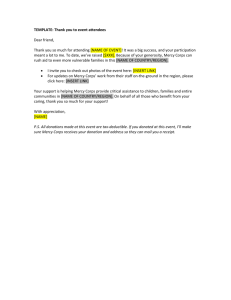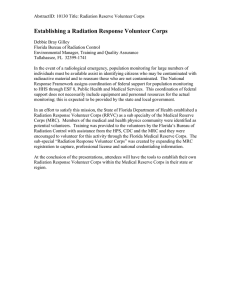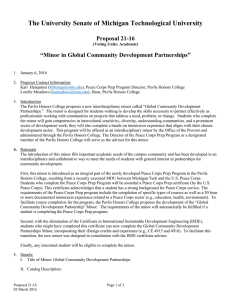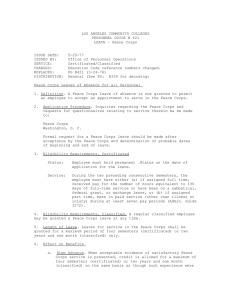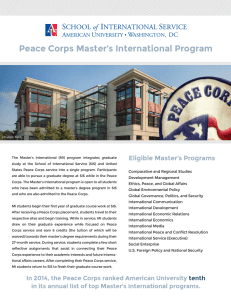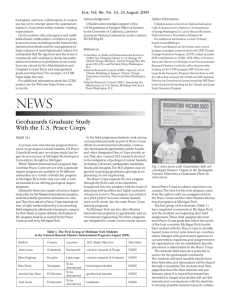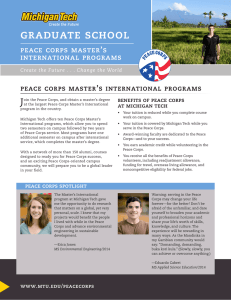T F C L
advertisement
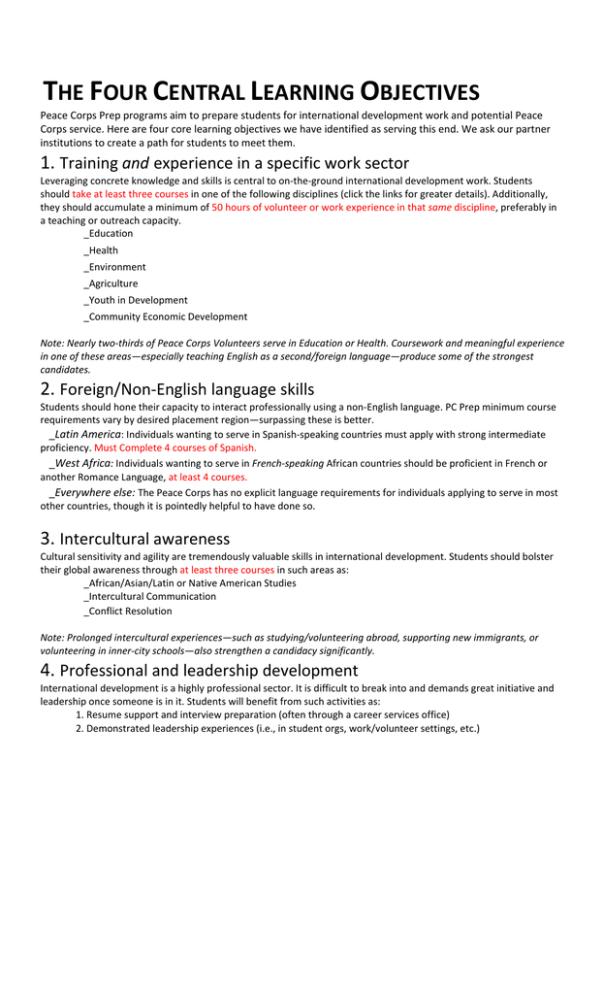
THE FOUR CENTRAL LEARNING OBJECTIVES Peace Corps Prep programs aim to prepare students for international development work and potential Peace Corps service. Here are four core learning objectives we have identified as serving this end. We ask our partner institutions to create a path for students to meet them. 1. Training and experience in a specific work sector Leveraging concrete knowledge and skills is central to on‐the‐ground international development work. Students should take at least three courses in one of the following disciplines (click the links for greater details). Additionally, they should accumulate a minimum of 50 hours of volunteer or work experience in that same discipline, preferably in a teaching or outreach capacity. _Education _Health _Environment _Agriculture _Youth in Development _Community Economic Development Note: Nearly two‐thirds of Peace Corps Volunteers serve in Education or Health. Coursework and meaningful experience in one of these areas—especially teaching English as a second/foreign language—produce some of the strongest candidates. 2. Foreign/Non‐English language skills Students should hone their capacity to interact professionally using a non‐English language. PC Prep minimum course requirements vary by desired placement region—surpassing these is better. _Latin America: Individuals wanting to serve in Spanish‐speaking countries must apply with strong intermediate proficiency. Must Complete 4 courses of Spanish. _West Africa: Individuals wanting to serve in French‐speaking African countries should be proficient in French or another Romance Language, at least 4 courses. _Everywhere else: The Peace Corps has no explicit language requirements for individuals applying to serve in most other countries, though it is pointedly helpful to have done so. 3. Intercultural awareness Cultural sensitivity and agility are tremendously valuable skills in international development. Students should bolster their global awareness through at least three courses in such areas as: _African/Asian/Latin or Native American Studies _Intercultural Communication _Conflict Resolution Note: Prolonged intercultural experiences—such as studying/volunteering abroad, supporting new immigrants, or volunteering in inner‐city schools—also strengthen a candidacy significantly. 4. Professional and leadership development International development is a highly professional sector. It is difficult to break into and demands great initiative and leadership once someone is in it. Students will benefit from such activities as: 1. Resume support and interview preparation (often through a career services office) 2. Demonstrated leadership experiences (i.e., in student orgs, work/volunteer settings, etc.)
